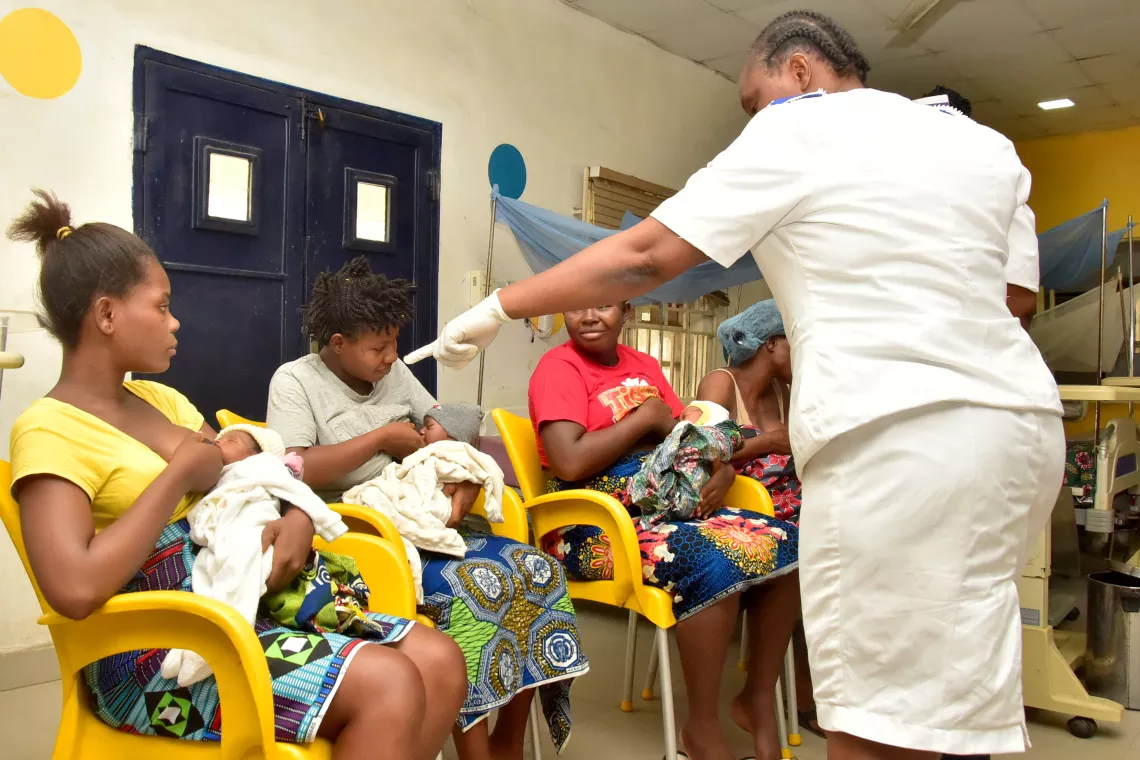
As Nigeria joins the rest of the world to mark World Breastfeeding Week, medical professionals and maternal health advocates are calling for stronger and more sustainable support systems to empower mothers and protect infants. This year’s theme, “Prioritize Breastfeeding: Create Sustainable Support Systems,” underscores the need to create enabling environments that encourage and sustain the natural practice of breastfeeding, widely recognized as the healthiest start in life for a child.
Despite overwhelming scientific evidence that breastfeeding reduces infant mortality, boosts brain development, and significantly lowers health risks for both babies and mothers, many women in Nigeria still struggle to practice exclusive breastfeeding due to cultural myths, lack of family support, and unfriendly workplace policies.
Health experts across Nigeria are speaking out this week, urging the government, private sector, and communities to do more in creating supportive environments that allow mothers to breastfeed successfully.
Dr. Linda Okorie, a Consultant Pediatrician at the University of Port Harcourt Teaching Hospital, described breast milk as “nature’s first line of defense” for newborns.
“Breast milk contains powerful antibodies, enzymes, and essential nutrients that protect the baby against infections like diarrhea and pneumonia. It’s the safest and most complete food for infants,” she said.
Dr. Okorie emphasized the importance of exclusive breastfeeding for the first six months — without water, infant formula, or other liquids — and recommended initiating breastfeeding within the first hour after delivery.
“That early skin-to-skin contact isn’t just emotional. It helps the baby latch properly and reduces postpartum bleeding in mothers. It’s life-saving for both the mother and child,” she added.
She further advised mothers to fully commit to six months of exclusive breastfeeding, describing it as one of the greatest gifts a mother can give her child.
“Exclusive breastfeeding for six months builds a strong immune system in babies, reduces the risk of malnutrition, and improves survival rates. It also saves families money and protects children from infections,” Dr. Okorie noted.
Adding to the discussion, Dr. Samuel Adeyemi, a Family Physician at Beulah Hospital in Port Harcourt, spoke on the emotional and cognitive benefits of breastfeeding.
“Breastfeeding supports early bonding between mother and child, which is crucial for social and psychological development. Studies show that children who are breastfed tend to have higher IQs and are less likely to experience behavioral issues,” he noted.
Dr. Adeyemi also highlighted the maternal health benefits, stating that breastfeeding reduces a woman’s risk of breast and ovarian cancer, aids in postpartum weight recovery, and lowers the chances of postpartum depression.
Despite this knowledge, many mothers are unable to continue breastfeeding due to external pressures, especially after returning to work. In Nigeria, maternity leave in the public sector is often limited to just three months — a far cry from the six months of exclusive breastfeeding recommended by the World Health Organization (WHO).
Dr. Chika Nwosu, a Public Health Expert and Maternal Health Advocate, said it is time for systemic change. She lamented that many Nigerian women are forced to return to work just six weeks after childbirth — a situation she described as “unrealistic and unfair.”
“Few workplaces offer breastfeeding-friendly environments. Most offices lack designated lactation rooms or flexible hours for nursing mothers,” she said.
Dr. Nwosu called on both government institutions and private employers to prioritize maternal health by implementing long-term policies that support breastfeeding, including: at least six months of paid maternity leave, flexible
work arrangements for nursing mothers, providion ofprivate lactation rooms in offices and public spaces. She also advised mothers to prioritize their well-being.
“A supportive system makes all the difference. If we want more women to breastfeed, we must create the conditions that make it realistic, safe, and dignified. And mothers, take care of yourselves—eat well, stay hydrated, and rest as much as you can,” she concluded.
As World Breastfeeding Week continues, stakeholders in the health sector are urging Nigerians to recognize that breastfeeding is not just a personal choice — it is a public health imperative. Creating sustainable systems to support mothers is not only an investment in children’s health but also in the nation’s future.

























